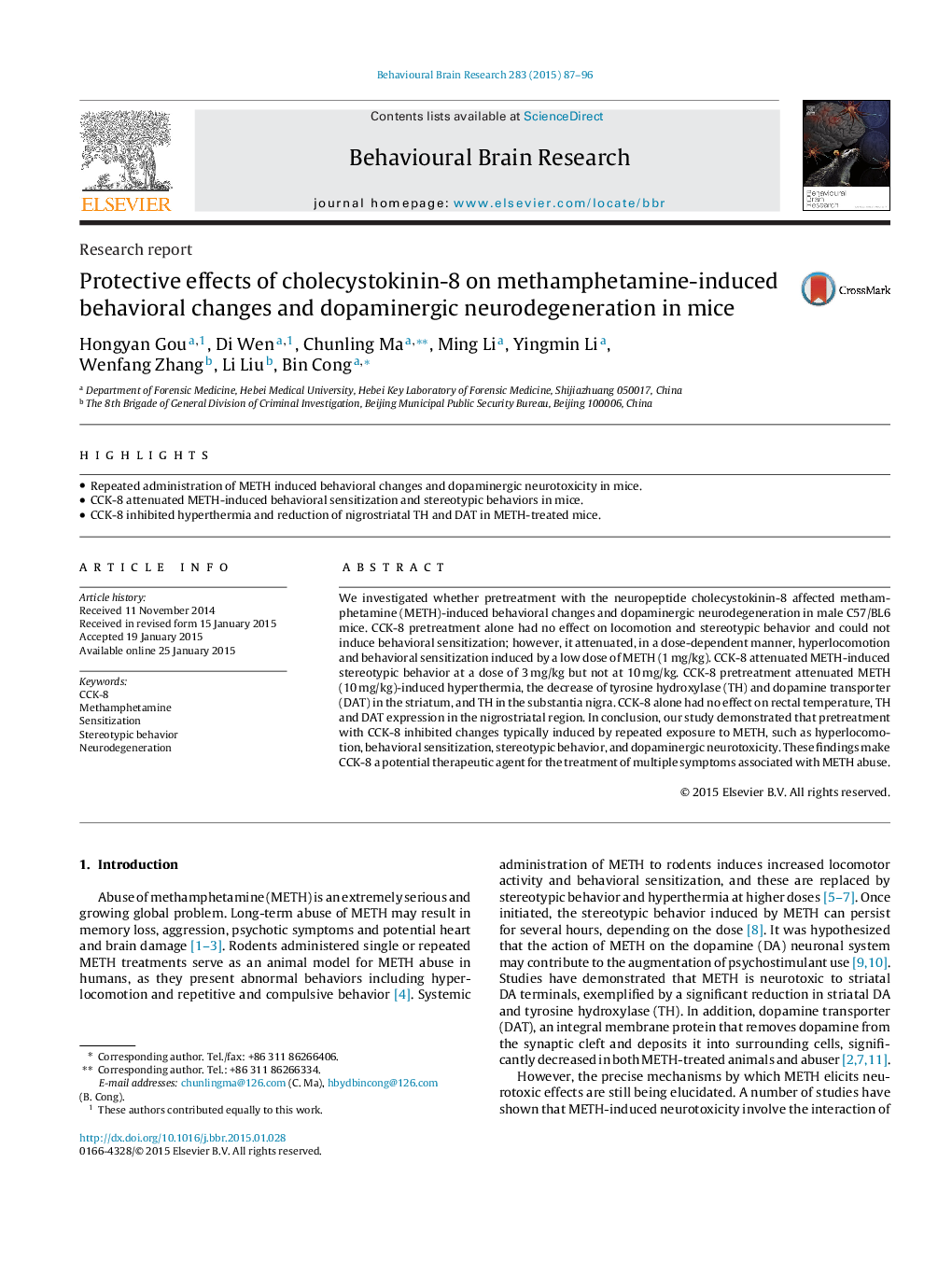| Article ID | Journal | Published Year | Pages | File Type |
|---|---|---|---|---|
| 4312476 | Behavioural Brain Research | 2015 | 10 Pages |
•Repeated administration of METH induced behavioral changes and dopaminergic neurotoxicity in mice.•CCK-8 attenuated METH-induced behavioral sensitization and stereotypic behaviors in mice.•CCK-8 inhibited hyperthermia and reduction of nigrostriatal TH and DAT in METH-treated mice.
We investigated whether pretreatment with the neuropeptide cholecystokinin-8 affected methamphetamine (METH)-induced behavioral changes and dopaminergic neurodegeneration in male C57/BL6 mice. CCK-8 pretreatment alone had no effect on locomotion and stereotypic behavior and could not induce behavioral sensitization; however, it attenuated, in a dose-dependent manner, hyperlocomotion and behavioral sensitization induced by a low dose of METH (1 mg/kg). CCK-8 attenuated METH-induced stereotypic behavior at a dose of 3 mg/kg but not at 10 mg/kg. CCK-8 pretreatment attenuated METH (10 mg/kg)-induced hyperthermia, the decrease of tyrosine hydroxylase (TH) and dopamine transporter (DAT) in the striatum, and TH in the substantia nigra. CCK-8 alone had no effect on rectal temperature, TH and DAT expression in the nigrostriatal region. In conclusion, our study demonstrated that pretreatment with CCK-8 inhibited changes typically induced by repeated exposure to METH, such as hyperlocomotion, behavioral sensitization, stereotypic behavior, and dopaminergic neurotoxicity. These findings make CCK-8 a potential therapeutic agent for the treatment of multiple symptoms associated with METH abuse.
